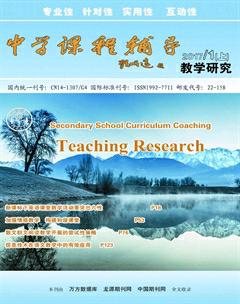Effects of Teacher Written Corrective Feedback on English Writing of Senior High School Students
高雅利
中圖分类号:G632.0 文献标识码:A 文章编号:1992-7711(2017)01-0089
I. Introduction
Writing plays an important part in English learning as the most difficult one of the four basic language skills. The learners ability to comprehend linguistic using can be reflected by writing. However, there are many kinds of errors that occur in the students writing. For one reason , the complexity of writing itself causes errors in the students writings. For another reason, some students and teachers usually do not take the writing classes seriously. The time for writing lessons just takes up the smallest proportion of all kinds of classes. Therefore, one of the most significant current discussions is how to find proper approaches to improve students writing ability. Teacher written corrective feedback is considered as the most focused one of all the approaches.
In recent years, corrective feedback has been a debate in the field of researches. As for Truscott(1996,2007), after analyzing others researches, his article in 1996 states that teacher written corrective feedback is helpful but harmful to students improvement of writing, consequently it should not be supported. However, some other researchers are approve of another contrary view. For instance, Ferris(1999) argues that Truscott ignores the researches where students have already made progress in composition with the help of feedback about grammar error. Most of the researchers supporting Ferris such as Ashwell (2000) Chandler(2003) and Leki(1991). Actually, there are disputes between those two opinions, which focus on whether corrective feedback is very effective in improving students writing.
In addition, which type of teacher written corrective feedback is more effective has been focused on by researchers at abroad (Hyland,1998;Zamel,1985), so do domestic researchers(Wang,2006; Chen&Li,2009;Guo&Qin,2006). The aim of the present study is to explore whether these two different types of teacher written corrective feedback (direct corrective feedback or indirect corrective feedback)have effects on improving English writing of senior high school students. Meanwhile, it also shows that which type of written corrective feedback (direct corrective feedback or indirect corrective feedback) is much more effective for these different level students.
This essay has been organised in the following way. Types of written corrective feedback; The effects of written corrective feedback on students writing; the effect of indirect corrective feedback for students at different levels; the effect of direct corrective feedback for students at different levels.

